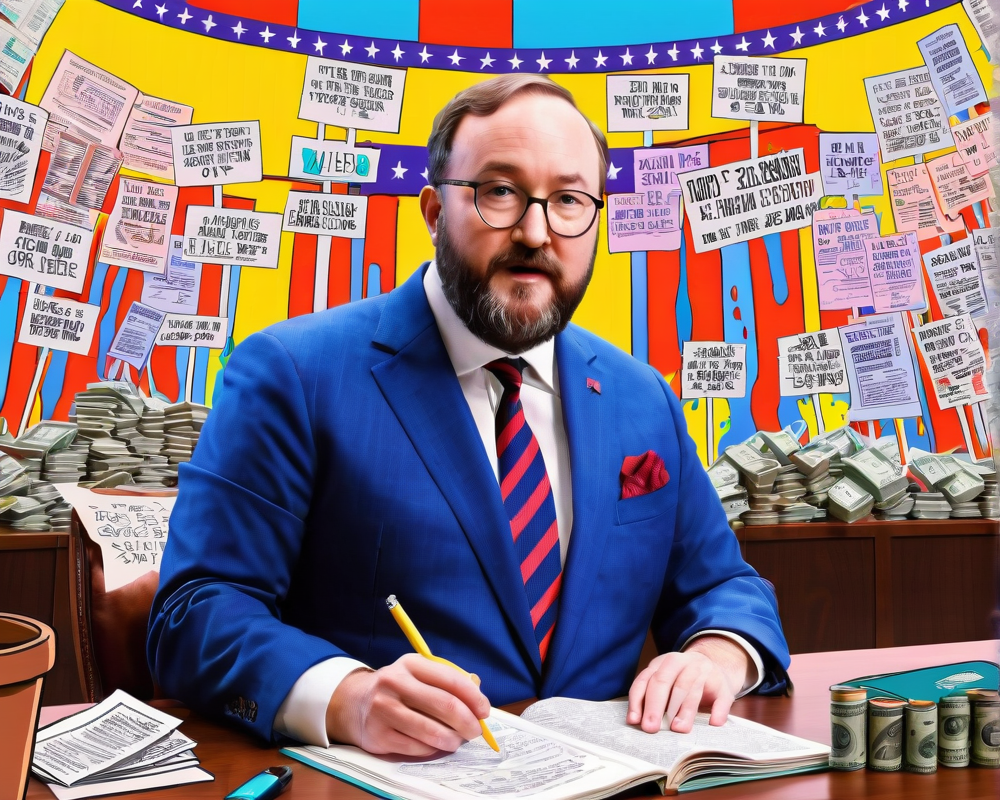Charles Hoskinson’s Stark Declaration
In a recent YouTube livestream, Ethereum co-founder and creator of Cardano, Charles Hoskinson, boldly declared ‘the economic order of the 20th century’ dead. By this, he was referring to the centralized and hierarchical economy built on long-standing treaties between powerful nations, a system that thrived when information couldn’t travel at the speed of light. Back then, folks were okay with a metaphorical ‘big brother’ looming large, telling them how to live their lives.
The Faulty Foundations of Centralization
According to Hoskinson, the recent market nosedive is a signal of the discord within this antiquated system. Imagine a bureaucratic maze in which a handful of powerful players call the shots for billions of others—this is the hierarchical order he criticizes. It’s like a bad game of Monopoly, where only a few “players” dictate the rules while everyone else struggles for survival.
The Shift to Decentralization
But fear not! Hoskinson champions the rise of a decentralized economy, promising solutions to modern-day issues like data ownership, privacy, and identity crises. He argues that we’re moving toward an economy that will no longer require CEOs, presidents, or any of those highfalutin titles. Instead, we’ll thrive in a world where everyone can play by their own rules.
Unraveling the Old Order
He paints a picture of the old order disintegrating. “What we are looking at right now is the unraveling of the economic order of the 20th century,” he says, sounding a bit like that friend who insists doom is imminent but also makes a good point. He suggests that the old structures of power—how money, credit, and finance operate—are crumbling as we shift into an age where accountability and transparency hold court. Ever seen a sandcastle washed away by a tide? Yeah, it’s a bit like that.
Will the European Union Stand Strong?
Hoskinson raises a worrying flag regarding the stability of the European Union. Given the economic strain from the pandemic, he posits that we may witness an Italian version of Brexit. It raises the question: will the EU survive if more countries decide to hop off this merry-go-round?
Scrutiny of Leadership
Diving deeper, Hoskinson doesn’t hold back on critiquing U.S. leadership. He laments how petty politics take precedence over public welfare, turning crises into bidding wars for electoral points. Instead of collaborating, it seems every party involved was more interested in playing a game of ‘who can point fingers better.’ Spoiler alert: the voters end up as losers.
The Case Against Central Authority
In Hoskinson’s view, the past decade’s negligence towards impending global crises—like pandemics—showcases an alarming lack of integrity in governing bodies. He firmly asserts, “We no longer need central authority.” Imagine a world where folks aren’t reliant on CEOs or kings! Sounds refreshing, doesn’t it?
Disruption Over Returns
Fun fact: crypto isn’t just about quick profits; it’s a pressing conversation about reforming our societal structure. It aims to eliminate the middleman in favor of immutable rules, likened to the laws of physics. Those rules don’t sway based on weather, politics, or even pandemics, which gives them a certain reliability.
A Shift in Digital Ownership
People are eagerly wanting to regain control of their financial lives and personal data, as emphasized by Hoskinson. Interestingly, the Brave browser—built on cryptocurrency principles—is rapidly gaining traction and might soon top Google Chrome. Folks are yearning for autonomy in a world that’s playing Monopoly with their lives.
Final Thoughts for the Crypto Community
Finally, Hoskinson turns his attention to crypto enthusiasts, advising patience. Unlike traditional markets, which shake at minor declines, the crypto arena has weathered storms of up to 90% drops. Keep your eye on the bigger picture, he urges, because what’s unfolding could fundamentally alter our societal landscape.
Building a Better Future
Despite the philosophical friction between players in the crypto space, Hoskinson champions unity in the mission to disrupt outdated systems for the betterment of all. Together, they hold the potential to forge a new world order, free from the shadow of centralized control.




